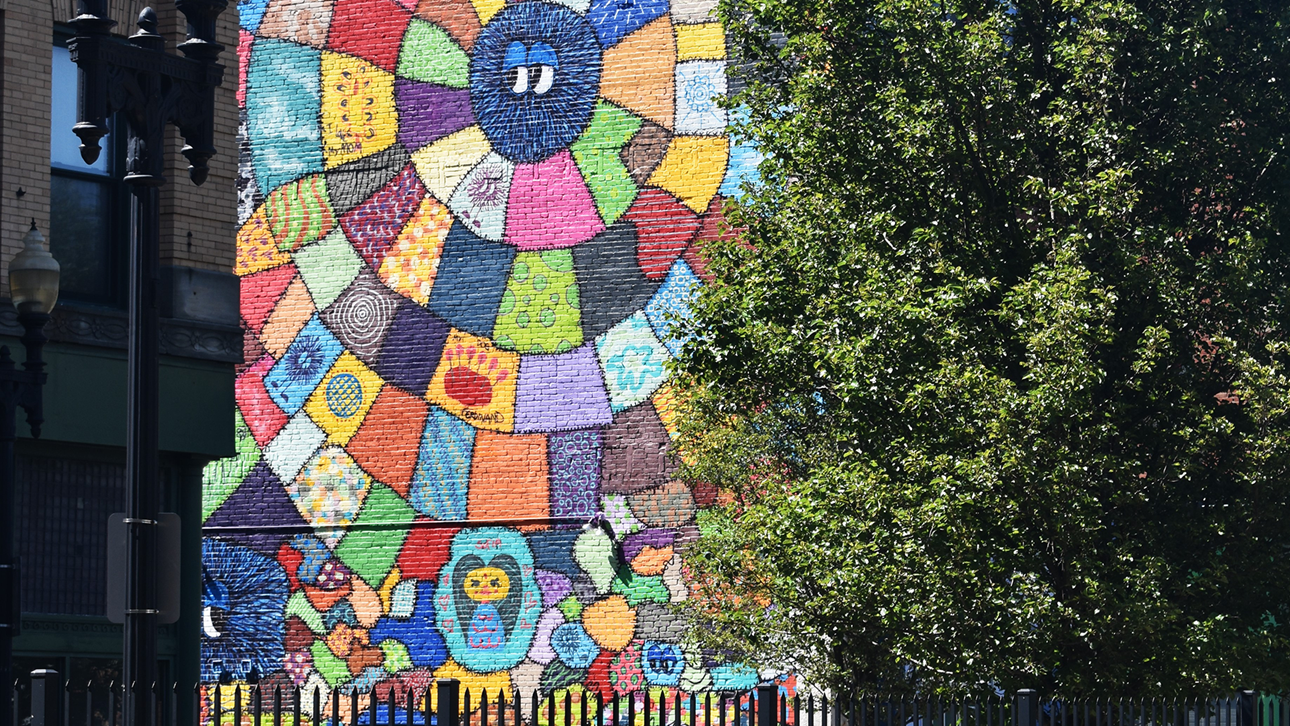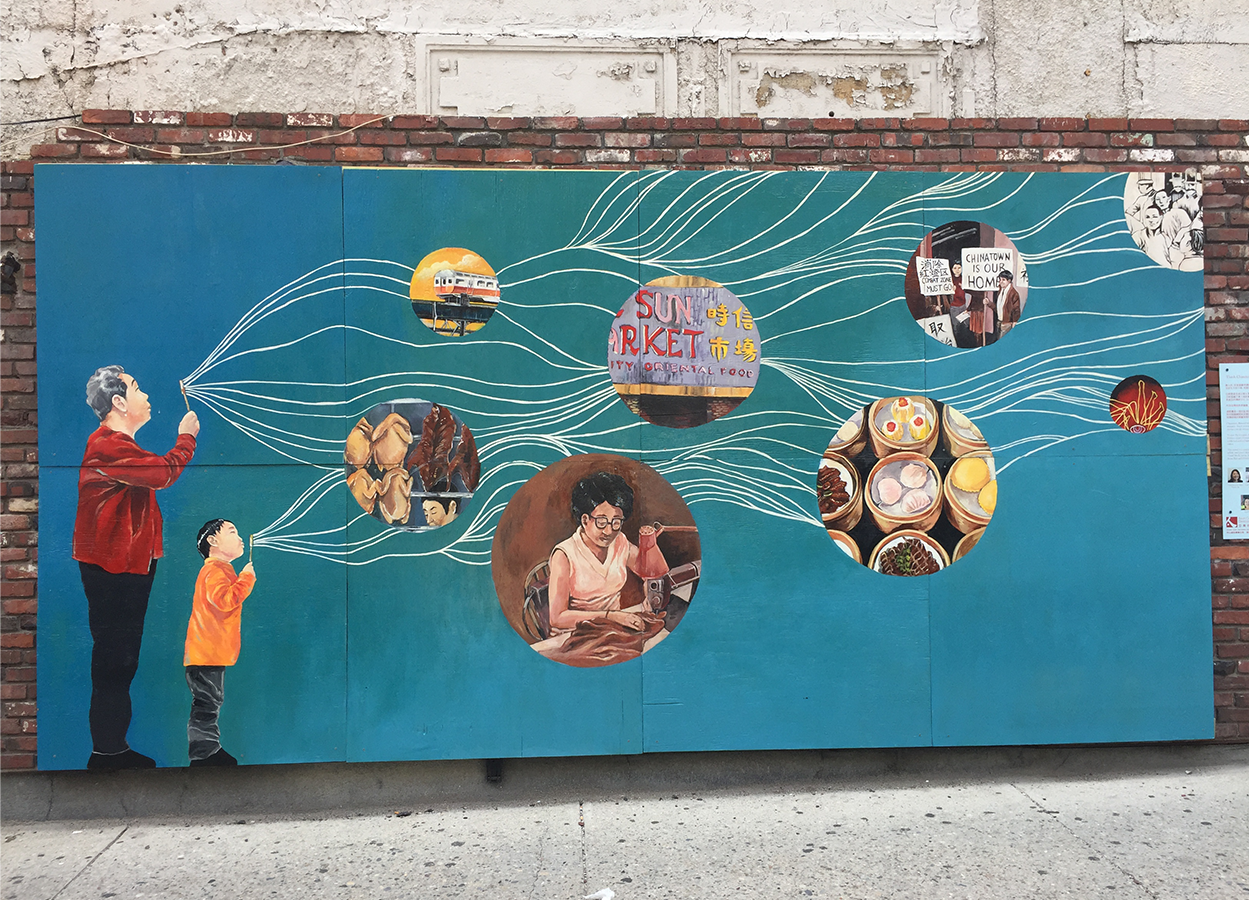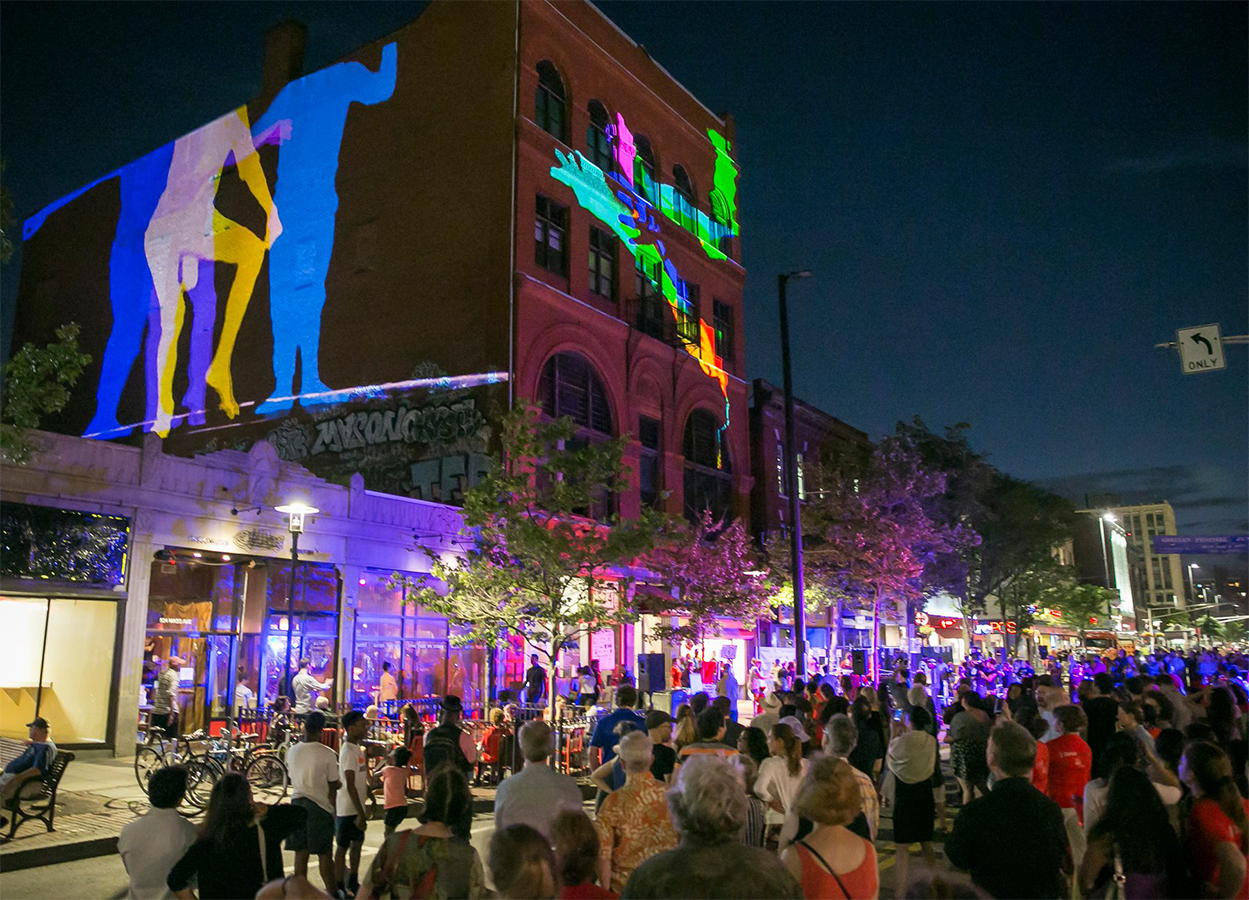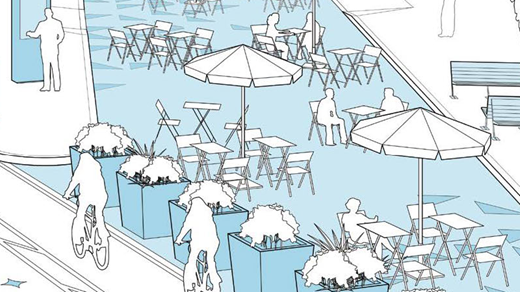
Place Leadership Network
Through a nine-month peer learning and leadership development program, as well as through financial support, the Boston Foundation elevated stewards of public spaces that contribute to creative, culturally vibrant, and equitable communities.
Creative, culturally-vibrant, and equitable public public spaces require dedicated stewards. These stewards are as varied as the places under their care: Main Streets, parks conservancies, Business Improvement Districts, CDCs, Cultural Districts and others. These types of organizations have been increasingly responsible for the shape of their neighborhoods. They formulate policy, advocate for city services, serve as platforms for creative expression and, most recently, bulwark communities against the tide of gentrification. Though they differ vastly in mandate and capacity, what unites these “place managers” is their vital role in representing community interest in the design and activation of shared spaces.
The Place Leadership Network, a Boston Foundation pilot, connected and strengthened leaders in the place management field. For nine months, local place-based leaders learned from one another, accessed a network of expertise and resources, and advanced transformative projects for their communities in an institute setting. Participants in the program, representing a diverse scale, geography, and constituency of the region, were compensated for their participation. At the conclusion, the Boston Foundation dedicated funds, through a peer recommendation process, to each of the participant programs to implement programs and projects that were developed as part of the Place Leadership Network.
Key Dates
First cohort selected : July 2019
Cohort sessions begin: August 15
Recommended reading
Why our shared spaces matter:
Thoughts on urbanism and equity
Read more >
A Diverse Network of ‘Place Leaders’ Activates Public Spaces in Boston:
NextCity highlights the first PLN cohort
Read more >
Latest press release:
Boston Foundation renews investment in equitable placemaking across Boston with $200k in PLN grants
Read more >
Meet the 2019-2020 Place Leadership Network Cohort
In July 2019, the Boston Foundation announced that 8 teams had been accepted into the first-ever class of the Place Leadership Network. These teams went through the nine-month curriculum with an eye toward proposing and completing a project in the public realm at the end of the cycle.
Asian Community Development Corporation, with the Chinese Historical Society of New England, seeking to strengthen and extend Chinatown's cultural footprint by reclaiming underutilized spaces through play and public art.
Bowdoin Geneva Main Streets, Cape Verdean Community of Boston and Meetinghouse Hill Civic Association, seeking to invest in economic self-sufficiency by transforming 20 vacant parcels into micro-enterprises.
Central Square Business Improvement District, with the Dance Complex and Community Arts Center, seeking a strategy to retain and expand spaces for creative expression.
Charles River Conservancy, with the Esplanade Association, seeking to collaborate more closely and effectively on inclusive programming that extends the reach of both organizations.
Hyde Square Task Force, seeking to engage young people of Boston's Latin Quarter in the design and animation of the community's public spaces.
North Shore Community Development Corporation, seeking to evaluate and replicate the impact of its murals program on the quality of life of low-income housing residents.
Roxbury Cultural District, seeking to advance residents' interests in negotiating for developer Community Benefits Agreements.
The Trustees of Reservations, seeking to integrate creative and cultural uses into its urban agricultural network of 56 community gardens throughout Boston.
Special thanks to the 2019 Place Leadership Network selection panel:
Ted Landsmark, Director, Dukakis Center for Urban Policy at Northeastern
Luis Cotto, Cultural Districts Program Manager, Massachusetts Cultural Council
Jennifer Effron, Policy Director, Boston Society of Architects
Jay Lee, Assistant Director of Design Construction Openspace, City of Boston Department of Neighborhood Development
Brad Barnett, Co-Director, Sasaki Strategies
Carrie Niemy, Program Director, Design Initiatives at Enterprise Community Partners
Stephen Gray, Assistant Professor of Urban Design, Harvard Univ. Graduate School of Design
Jacob Wessel, Public Realm Director, City of Boston
Giles Li, Executive Director, Boston Chinatown Neighborhood Center
Sam Aquillano, Executive Director, Design Museum Boston

The Place Leadership Network Program
Over the course of nine months, participants built networks and organizational capacity through a series of focused, facilitated curricular modules. Each module was themed around a critical element of place management, such as planning and zoning, tactical urbanism, fundraising, and working with creative producers. This curriculum was guided both by disciplinary experts and by fellow participants, emphasizing peer-to-peer learning as part of the process.
At the conclusion of the program, the Boston Foundation awarded funds through a peer recommendation process within the cohort n order to support participants in implementing tangible projects.
Why here and now?
In the current planning and development boom, Boston is undergoing dramatic changes. Like urban areas across the U.S., Boston is being reshaped by real estate market pressures, demographic shifts, climate change, globalization, and other powerful forces. At this pivotal moment, the interests and cultural identity of the city’s neighborhoods are in greatest need of being championed.
Place management organizations throughout Boston are the most effective champions of local needs, and serve as platforms for the cultural expression of their communities. They are at the front lines of making their communities creative, culturally vibrant, and equitable.
FAQ
Learn more about the design of the Place Leadership Network, its goals, its collaborative spirit, and its partners in the Frequently Asked Questions.
Glossary
“Place management” is cumbersome, “placemaking” is a cliche, and even the notion of “place” itself is contested. We don’t expect that everyone will have the same definitions of common (and unusual) terms as we do, so we put together a basic glossary here.



